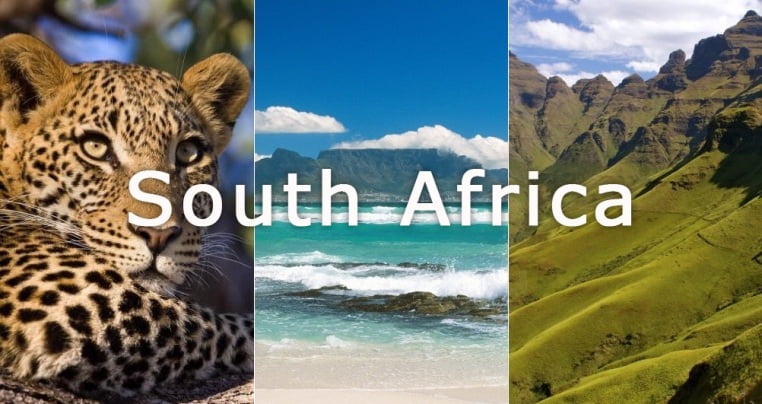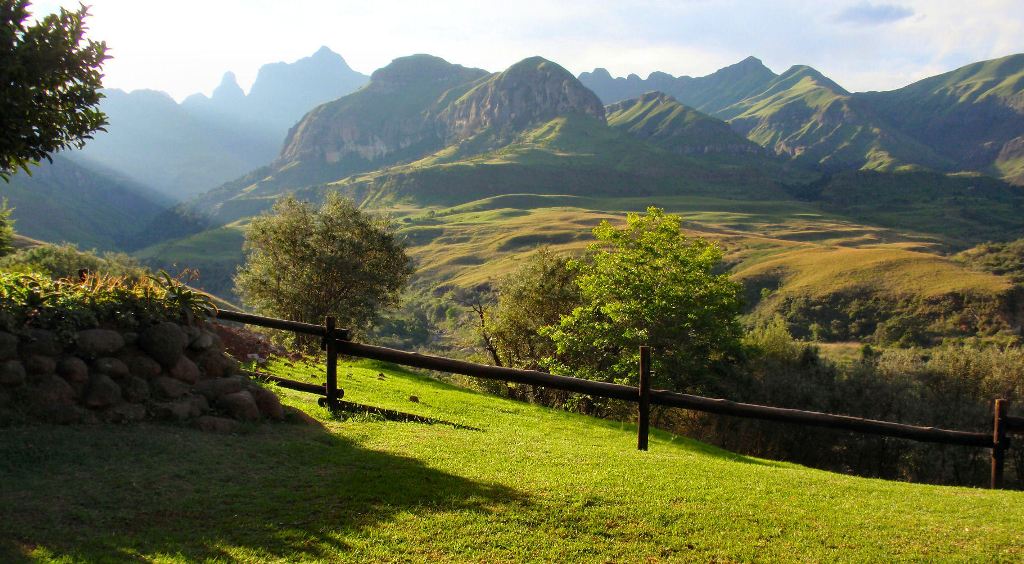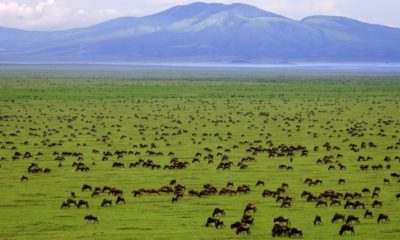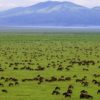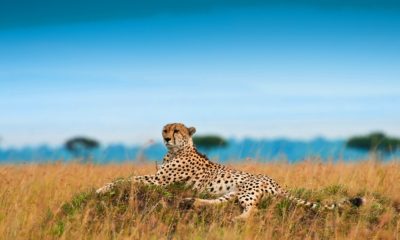South Africa Backpacking Guide
South Africa is a country of varying landscapes and cultures, renowned worldwide for its wildlife, wines, beaches and mountains.
Go To South Africa For…
Wildlife
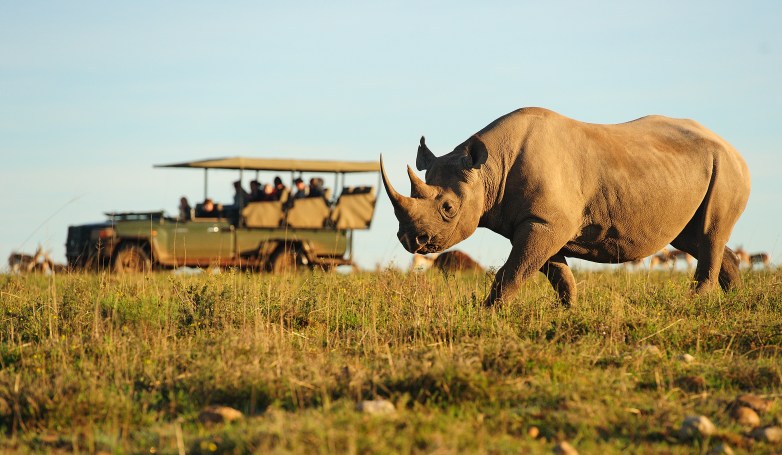 Rhino, Shamwari Game Reserve.
Rhino, Shamwari Game Reserve.
The African big five game (elephants, lions, cape buffalo, rhinoceroses, and leopards) can all be found in South Africa. Less aggressive animals, such as penguins, meerkats, and whales can also be seen in their natural habitat, along with another 292 species of mammals and 857 species of birds.
Mountains and Natural Beauty
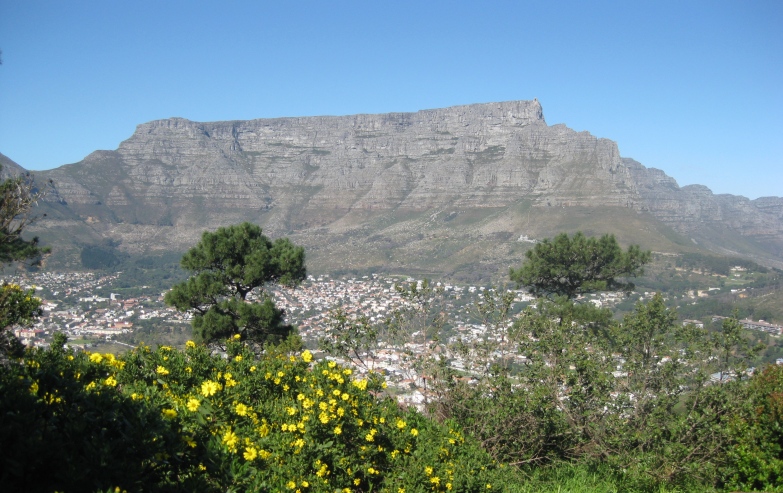 South Africa’s most famous mountain, Table Mountain.
South Africa’s most famous mountain, Table Mountain.
South Africa’s landscapes are beautiful and diverse, with spectacular mountains, forests, coastlines, plains, and deserts. The two most impressive natural wonders are the iconic Table Mountain and the breath-taking Drakensberg Range.
Cultural Diversity
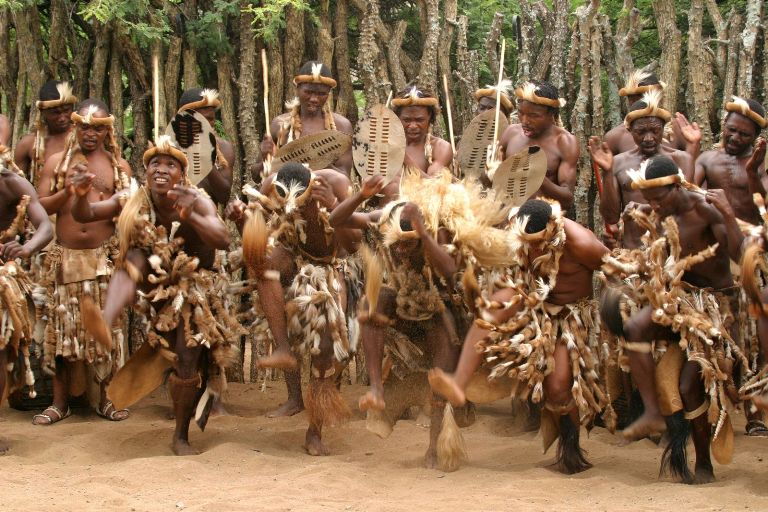 Zulu cultural dance.
Zulu cultural dance.
South Africa has a wide range of cultures, with 11 official recognised languages; Afrikaans, Southern Ndebele, Northern Sotho, Sotho, Swazi, Tsonga, Tswana, Venda, Xhosa, Zulu, and, fortunately for travellers, English.
Action and Adventure
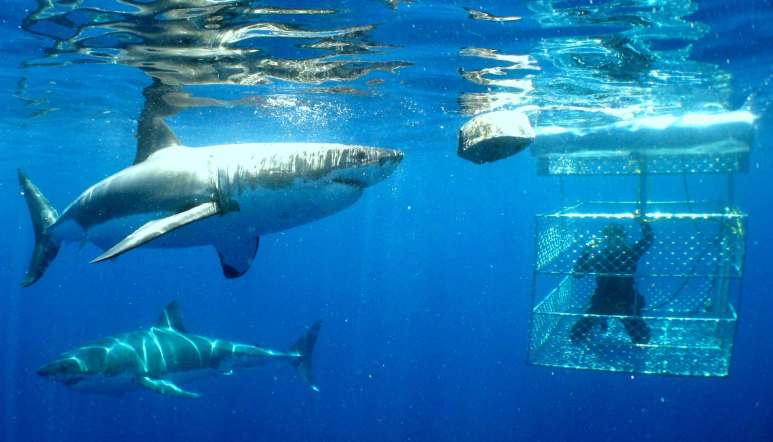 Great White Shark Cage Diving, Gansbaai.
Great White Shark Cage Diving, Gansbaai.
South Africa is one the action capitals of the world, with over 130 adventures to try according to the national tourist board, from mountain biking and white water rafting to bungee jumping and shark cage-diving.
Consider Going Elsewhere If You…
Are Concerned About Safety
There is no getting away from the fact that South Africa has one the worst crime rates in the world and there may be situations where you feel on edge. However it is important to remember most cases of crime, particularly violent crime, occur in the townships and the risk of violent crime to visitors travelling to the main tourist destinations is generally low. South African authorities give high priority to protecting tourists, and tourism police are deployed in several large towns.
Whilst less of danger, if you take precaution, it is also important to keep in mind that South Africa has many dangerous animals, prevalent diseases such as malaria, and a large amount of people living with HIV.
Top Places To Visit In South Africa
Drakensberg Mountain Range
The highest range in South Africa – the spectacular scenery makes it a paradise for hikers.
More than 40,000 ancient rock paintings can be found in the many caves and rock overhangs within the range. More Places to Visit in South Africa…
South Africa Need To Know
Basics
Languages:
Capital:
Currency:
|
Dial Code:
International Access Code:
Emergency Services Number:
Time Difference:
|
Advice constantly changes. Always check with your foreign office (British Foreign Office webpage) or travel advice bureau for the latest information regarding your destinations safety.
Entry
Citizens of most countries do not require a visa for stay of up to 90 days, including The UK, The US, New Zealand, Australia, Canada, and most EU nations. Many other nations do not need a visa for stays of less than 30 days.
Your passport should be valid for a minimum period of 30 days from the date of exit from South Africa.
Your passport should have at least 2 blank pages when you present it at immigration to enter or leave South Africa.
Yellow fever vaccination is required for travellers arriving from countries with risk of yellow fever transmission.
For official information visit your home government travel bureau or home-affairs.gov.za.
Getting Around
For safety reasons, many people stick to organised trips when visiting South Africa as a whole, they are generally well organised and relatively inexpensive.
However there are many other safe options to travel in South Africa. Baz Bus is a backpacker hop-on-hop-off bus service; it will pick you up and drop you off at many hostels along the most popular routes, so you don’t have to hang around at a downtown bus stops at night.
Normal coaches are great for intercity travel, but only use reputable operators such as Greyhound.
There are commuter trains in larger cities, most services are perfectly safe, but seek local advice, i.e. from hostel staff, before using certain routes.
Driving is an option, with hiring and buy-back options being cheap. Just ensure when in traffic you leave enough space between your car and the one in front, as “boxing in” is a common hijacking manoeuvre.
Hitchhiking is generally frowned upon and considered unsafe.
Read more about Getting Around When You Get There here
Accommodation
South Africa has a wide variety of hostels and backpacker lodges in cities and popular tourist areas.
The average price of a hostel or lodge is 100-280 ZAR (£6-16) a night.
The majority of hostels in South Africa will provide linen and bathroom facilities. Usually there will be cooking and internet facilities as well as a common area and laundry services.
Camping and budget accommodation in game reserves and national parks are also possible.
Read more about Accommodation When You Get There here
Food And Health
The standard of food safety and hygiene is generally good, and there are many places to eat out cheaply.
Tap water is usually safe, but if in doubt or if stated otherwise, stick to bottled water. A strong risk of bilharzia exists with still-standing water.
Many people in South Africa live with HIV; never have unprotected sex with a stranger, share a needle or have unregulated medical procedures (including tattoos and piercings).
Medical facilities are good, but private hospitals are much better than public ones. Make sure you have adequate travel insurance and accessible funds to cover the cost of any medical treatment and repatriation.
Malaria is present in parts of South Africa. Always contact your GP around 8 weeks before your trip to check whether you need any vaccinations or other preventive measures. Visit here for recommended vaccinations.
Weather & Time To Go
The south western corner of South Africa has a pleasant Meditereanean climate. The interior is temperate, whilst the north west has a dry desert climate and the eastern coastline is sub-tropical. Most of the country has warm, sunny days and cool nights, and ranges from cold, near zero, at night in winter, to very hot, in excess of 35°C on summer days.
The rainy season for the majority of the country is in the summer, but the rains in the Western Cape come in the winter. Rainfall in the Eastern Cape is distributed evenly throughout the year.
Communications
Internet and wifi is widespread and accessible in most hostels. Local pay-as-you-go SIM cards for your mobile phone and international calling cards are cheaply available.
Dangers And Considerations
South Africa has a very high level of crime, but the risk of violent crime to visitors travelling to the main tourist destinations is generally low. The South African authorities give high priority to protecting tourists and tourism police are deployed in several large towns. Most cases of violent crime occur in the townships, so consult a reliable tour guide if you visit a township.
There are particularly high levels of crime in the Berea and Hillbrow districts of Johannesburg and around the Rotunda bus terminus in the Central Business District.
Avoid isolated beaches and picnic spots. Don’t walk alone, especially in remote areas. When hiking stick to popular trails.
Read here for general tips on How To Avoid Getting Robbed.
There is a high incidence of credit card fraud and fraud involving ATMs. Make sure your PIN is not seen by others when withdrawing money from an ATM and refuse offers of help from bystanders, as this is usually an indication of a scam.
Always carry your identity documentation or a copy of your passport, as you’ll need to be able to produce valid identification on request by South African officials.
Read more about Safety And Security here
Respecting Culture
Unlike other parts of the world “coloured” is not a derogatory term, but “mixed race” is. “Coloured” refers to people of mixed European and African descent, and “black” refers to people of solely African ancestry. Race and the apartheid are still very sensitive issues and you may hear racist remarks from all different race groups. It is advisable to avoid racial or political discussions while in South Africa if you don’t have a good understanding of South African history.
Homosexual displays of affection may generate unwelcome attention, although South Africa is much more tolerant than the rest of the continent.
South African people tend to be very to the point, so if you do something that offends, they will tell you so in a very direct manner.


